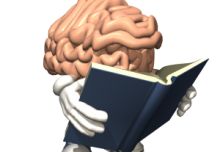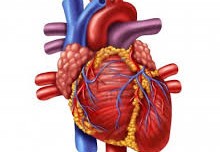 …When She’s Gone.” Or how about, “You are My Sunshine, My Only Sunshine?” or “Here Comes the Sun?” or “Good Day Sunshine?” or “Sunshine on my Shoulder?” The sun has meant enough to Bill Withers, Christina Perri, The Beatles, John Denver and others to become an element of their music…upbeat when there is sunshine and downbeat when the sunshine goes away. And it’s the right time to talk about the mental toll that lack of sunshine will take on many of us as we slog through the shortest month of the year and crawl away from the shortest day of the year, December 21.
…When She’s Gone.” Or how about, “You are My Sunshine, My Only Sunshine?” or “Here Comes the Sun?” or “Good Day Sunshine?” or “Sunshine on my Shoulder?” The sun has meant enough to Bill Withers, Christina Perri, The Beatles, John Denver and others to become an element of their music…upbeat when there is sunshine and downbeat when the sunshine goes away. And it’s the right time to talk about the mental toll that lack of sunshine will take on many of us as we slog through the shortest month of the year and crawl away from the shortest day of the year, December 21.
Some people may scoff at what has come to be called Seasonal Affective Disorder, but it’s no different really from clinical depression except that we can almost predict the onset for some people based on the length of a day or how overcast the skies may be. Yet, not everyone sees it in themselves, despite the fact that it can be addressed as easily as turning on a full spectrum lamp.
Seasonal Affective Disorder, depression, is not always easy to diagnose in order to move toward a better place with an effective intervention. What are the warning signs?
- It’s Hard to Concentrate – You or a loved one may find it’s harder to accomplish what are normally easy tasks or it’s hard to give something the focus needed in order to bring it to closure.
- Socializing is Less Attractive – You or a loved one may make excuses that it is too cold to head out to mix with your friends. Or it’s just easier to continue to say you’ll “take a pass” and stay at home to almost unconsciously binge on cable.
- Eating Becomes Emotional – As with screen time, you or a loved one may begin binge-eating or have cravings for a certain food or just plain lose interest in food altogether.
- Avoiding Intimacy Becomes the Go-To – It’s really just another form of isolation when you or a loved one begin to avoid touch, or you don’t initiate intimacy or as with food, you just avoid going out with anyone.
- Phone Time is More than the Phone – If you or a loved one are somewhat surprised more than once a day by how low a cell phone battery has drained, or are that pedestrian in the crosswalk who isn’t paying attention to whether the cars have stopped while strolling into the intersection.
Some of this is a straightforward fix … if you consider addressing clinical depression straightforward. Talk therapy can help as can a shakeup of the regular fitness routine to get in your 10,000 steps a day or a daily trip to the gym or whatever it takes to jump start your endorphin flow. And there is always the SAD lamp as a complement to these other remedies. Make sure you do your homework on the spectrum of light necessary for a lamp to be effective. And take heart. The Vernal Equinox is just a short month away. Think Spring!
Charlotte Bishop is an Aging Life Care Advisor, Geriatric Care Manager and founder of, certified professionals who are geriatric advocates, resources, counselors and friends to older adults and their families in metropolitan Chicago. She also is the co-author of How Do I Know You? A Caregiver’s Lifesaver for Dealing with Dementia.






